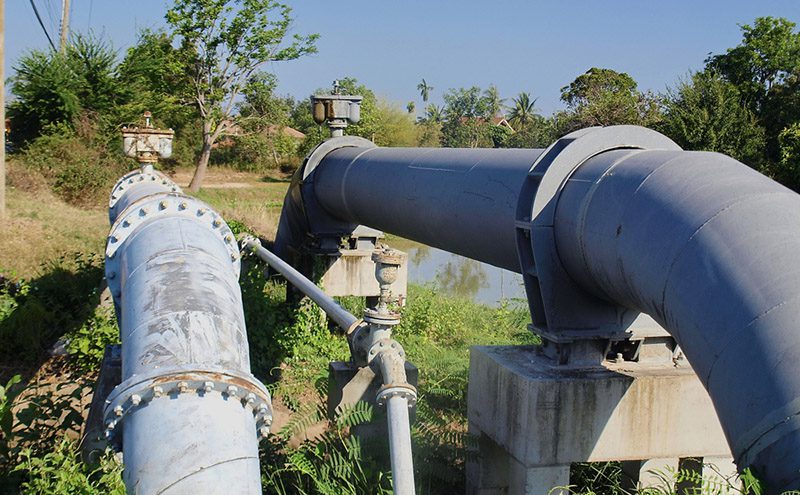
The BPF Pipes Group said it was pleased to support Water UK in the updating of WIS 4-32-11, recognising the significant contribution it makes to providing confidence to specifiers of the lifetime reliability of fittings used as part of a barrier pipe system.
This 3rd edition of the specification brings welcome clarity to the testing and performance of fittings for small diameter polyethylene pipes, says the BFP Group. It creates one specification, covering the assessment of fittings from 20 mm through to 63 mm for PE pressure pipes manufactured to BS EN 12201-2 and for PE pressure pipes with an aluminium barrier layer manufactured to BS 8588.
Since it replaced WIS 4-32-19 in February 2017, BS 8588 has become the industry standard for polyethylene piping systems with an aluminium layer. It confirms through testing, that a pipe and fitting in combination successfully act as a barrier to organic contaminants, ensuring that concentrations remain below a threshold to protect drinking water quality. safeguard the longevity of the system and the ongoing protection of the water supply, both pipe and fitting need to be mechanically sound and together be capable of delivering a leak-tight system over the product lifetime. BS 8588 calls upon fittings for use with barrier pipe to be tested to WIS 4-32-11, but until this 3rdedition of the specification, the testing has not corresponded with this pipe.
In the UK, Type A barrier pipe is used (where the core plastic pipe bears the stresses associated with long term hydrostatic pressure, the aluminium layer provides the barrier to contamination and the outer plastic protects). The core pipe performs in the same way as a small diameter polyethylene pipe, allowing testing also to be carried out in the same way. The short- and long-term pressure testing is therefore now consistent with BS EN 12201-2 for PE pipes.
Testing for other properties, such as pipe performance during bending, resistance to low pressure vacuums caused by sudden shutdowns of the pipeline, resistance to pull-out of the pipe from the fitting due to temperature changes in the pipe wall, or creep over the lifetime of the pipe, have all been aligned to current International Standards (ISO).
Since its inception in 1990, WIS 4-32-11 has guaranteed through a combination of short and long term testing that fittings for polyethylene pipe can be shown to be fully resistant to the operating conditions in the pipeline. The ability of fittings resist longitudinal forces from internal pressure or temperature fluctuations in the pipe is a key feature ensuring long-term leak-tightness. So, the end load resistance values have been corrected in line with IGN 4-0-02: Issue 3 (December 2017).
The BPF Pipes Group always recommends using fittings which have been fully assessed and certified by a third party, such as the BSI Kitemark, to WIS 4-32-11. Where certification is not available, specifiers are advised to check that all tests included in the specification have been completed.
The collaboration between the BPF Pipes Group and water companies, together with the wider consultation which accompanies the release of all water industry specifications, means that this third edition of WIS 4-32-11 provides specifiers with confidence in the lifetime reliability of fittings for use with small diameter polyethylene pipes.
The BPF Pipes Group strongly encourages those specifying these types of pipes and fittings to check that permeation testing under BS 8588 has been carried out to the actual pipe and fitting combination being offered, and to check that mechanical performance has been fully assessed to WIS 4-32-11 using the fittings and barrier pipe for which they are being offered. Purchasing from a member of the BPF Pipes Group will ensure confidence in the whole system.
Derek Muckle chairs the BPF Pipes Group Working Group on pressure pipes and jointing. He commented: “Using pipe and fitting combinations tested and certified to WIS 4-32-11 will provide assurance of the long term system performance and give confidence in the future reliability of barrier pipe systems.”








